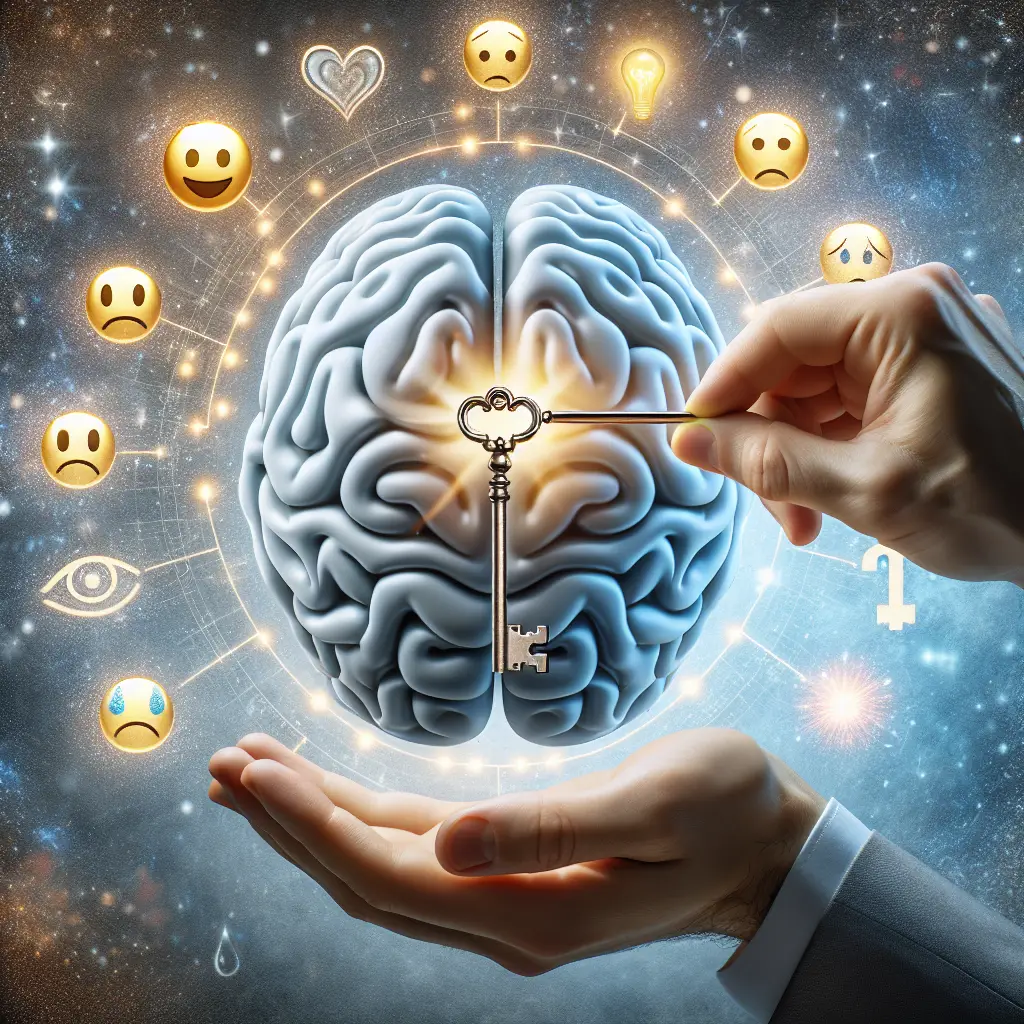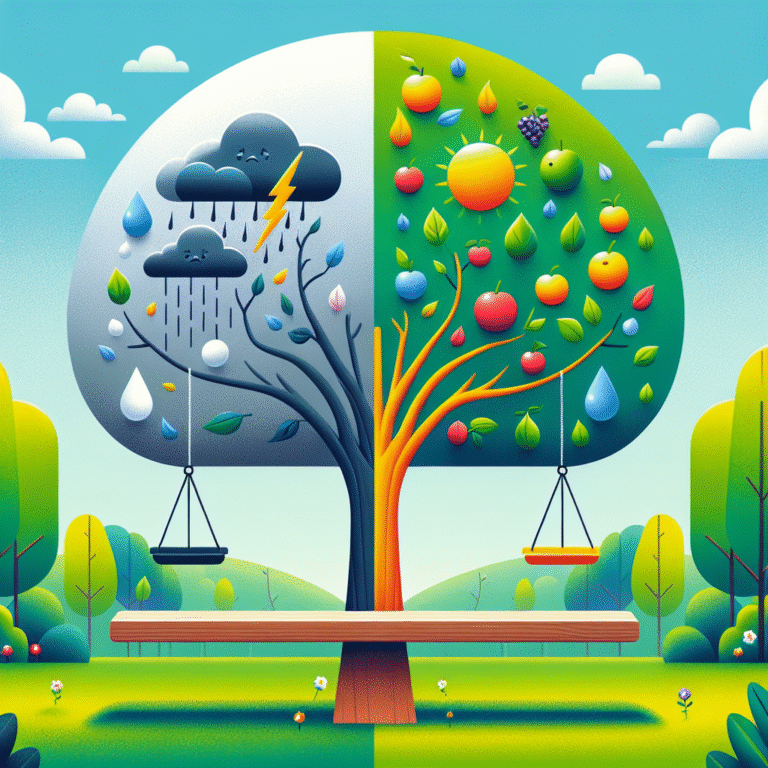
Unlocking Emotional Awareness: How to Identify and Manage Your Triggers for Ultimate Personal Growth
Introduction
In today’s fast-paced world, emotional awareness is not just a luxury but a necessity. The ability to understand and manage our emotions significantly impacts our relationships, decision-making, and overall well-being. Unlocking emotional awareness: how to identify and manage your triggers is a powerful theme that can lead to transformative changes in your life.
Imagine not being at the mercy of unexpected outbursts, frustrations, or anxieties. Instead, picture yourself navigating your emotional landscape with confidence and ease. This article dives deep into the importance of emotional awareness, providing not just the tools for identification but techniques for management.
Understanding Emotional Awareness
What is Emotional Awareness?
Emotional awareness refers to the ability to recognize and understand your emotional states. It encompasses not only identifying your feelings but also comprehending the reasons behind them and the triggers that ignite these emotions. By unlocking emotional awareness, you gain incredible insight into yourself, laying the foundation for improved relationships and personal growth.
Why is Emotional Awareness Important?
-
Improved Relationships: Better emotional awareness leads to healthier communication. You become more empathetic and understanding, allowing you to connect deeply with others.
-
Better Decision-Making: Emotions can cloud judgment. By recognizing your feelings, you can make more rational decisions.
-
Stress Management: Understanding your emotional triggers helps you minimize stress and anxiety by providing you with tools to manage them effectively.
- Increased Resilience: Emotional awareness fosters a greater sense of resilience, enabling you to bounce back from setbacks more quickly.
Identifying Your Emotional Triggers
What are Emotional Triggers?
Emotional triggers are specific events or situations that provoke strong emotional reactions. They can stem from past experiences, societal conditioning, or personal beliefs. Identifying these triggers is crucial for unlocking emotional awareness and managing your responses effectively.
Common Categories of Triggers
- Environmental Triggers: Certain places or situations can evoke strong emotions.
- Interpersonal Triggers: Interactions with specific people may lead to emotional responses based on past relationships or conflicts.
- Internal Triggers: Feelings of inadequacy or fear of failure rooted in internal belief systems can also serve as triggers.
Case Study: The Impact of Triggers
Case Study: Sarah and Her Workplace Anxiety
Sarah was often anxious during team meetings, convinced that her input would be critiqued. By practicing emotional awareness, she realized that her triggers stemmed from a previous negative work experience. Identifying this trigger allowed her to approach meetings with a fresh mindset and even discuss her feelings with her supervisor, fostering a more supportive work environment.
Analysis: This case highlights how understanding past experiences can help in managing emotional triggers, ultimately leading to improved workplace dynamics and personal confidence.
Tools for Identifying Triggers
- Journaling: Keeping a daily journal can help spot patterns in your emotional responses.
- Mindfulness Practices: Engaging in mindfulness or meditation can enhance your awareness of emotional changes in real-time.
- Feedback from Others: Sometimes, friends or family members can easily point out when you’re reacting to a trigger.
Managing Your Emotional Triggers
Strategies for Emotional Regulation
Once you’ve identified your triggers, it’s time to implement strategies to manage them effectively.
-
Cognitive-Behavioral Techniques: These involve restructuring negative thought patterns and beliefs associated with your triggers.
-
Grounding Techniques: Activities being mindful of your surroundings can help reduce immediacy in emotional responses.
-
Communication Skills: Practicing assertive communication helps express emotions without escalating them negatively.
- Relaxation Techniques: Breathing exercises or progressive muscle relaxation can help calm emotional responses.
Case Study: Mark’s Journey to Emotional Stability
Mark experienced road rage frequently. Through emotional awareness, he identified that traffic made him feel powerless, a feeling linked to a childhood incident. By utilizing cognitive-behavioral techniques and learning relaxation methods, Mark shifted his focus from feeling trapped to embracing the journey, ultimately reducing his road rage significantly.
Analysis: Mark’s experience shows the importance of linking triggers to emotional responses and employing tools to shift perspectives and responses effectively.
Creating an Action Plan
Consider developing a personal action plan for managing your triggers based on the strategies discussed. Your action plan might include:
- Daily journaling for emotional reflections
- Regularly scheduled mindfulness sessions
- A list of grounding techniques to practice in real-time
- Establishing open channels of communication with trusted individuals
The Role of Support Systems in Emotional Awareness
Building a Supportive Network
Having people you trust can significantly enhance your ability to unlock emotional awareness. These support systems can help you identify triggers, hold you accountable, and offer perspective when you’re caught in emotional turmoil.
Case Study: Laura’s Support Group
Laura attended a support group for individuals facing similar challenges in emotional management. Sharing her experiences and challenges allowed her to realize that she wasn’t alone, and hearing the techniques others used to manage their triggers provided her with valuable insights. This communal effort led to Laura developing a strong sense of emotional resilience.
Analysis: Laura’s case emphasizes how collective experiences can build effective coping strategies, allowing for a smoother journey through emotional awareness.
Tables for Clarity
Table 1: Types of Triggers
| Type of Trigger | Example | Emotional Response |
|---|---|---|
| Environmental | Crowded places | Anxiety |
| Interpersonal | Conversations with old friends | Insecurity |
| Internal | Self-critical thoughts | Self-doubt |
Table 2: Management Strategies
| Strategy | Description | Ideal Context |
|---|---|---|
| Cognitive-Behavioral Techniques | Restructuring thoughts | Moderate triggers |
| Grounding techniques | Staying present in the moment | High-stress situations |
| Relaxation methods | Deep breathing or muscle relaxation | Pre-triggered states |
Conclusion
Unlocking emotional awareness: how to identify and manage your triggers is an empowering journey that paves the way for a healthier emotional life. By recognizing your emotional landscape, identifying your triggers, and applying effective management strategies, you can achieve increased resilience and better relationships.
Embrace your emotional growth—it might just be the key to unlocking the best version of yourself. Remember, every small step you take counts towards your emotional well-being.
FAQs
1. What if I can’t identify my triggers?
Sometimes triggers are deeply rooted and not immediately apparent. Keeping a detailed journal or seeking professional help can provide clarity.
2. Can emotional triggers be permanently eliminated?
While it’s challenging to eliminate triggers entirely, you can learn to manage your responses and reduce their impact over time.
3. How long does it take to develop emotional awareness?
Emotional awareness is a continuous process. It varies by individual, but with dedication, you can see improvements within weeks.
4. Are there professionals who can help with emotional awareness?
Yes, therapists, psychologists, and life coaches often have specialized techniques to assist individuals in developing emotional awareness.
5. How do I know if I’m making progress with my emotional awareness?
Signs of progress include having fewer emotional outbursts, feeling calmer in triggering situations, and experiencing improved relationships.
Final Thoughts
Engage in this journey of unlocking emotional awareness for a fulfilling and balanced life. Remember, you hold the tools necessary to recognize, understand, and ultimately master your emotions. Your journey starts now!
















